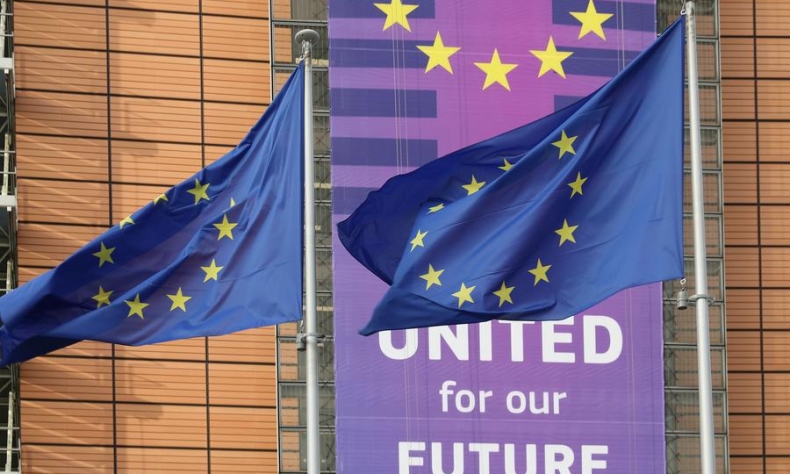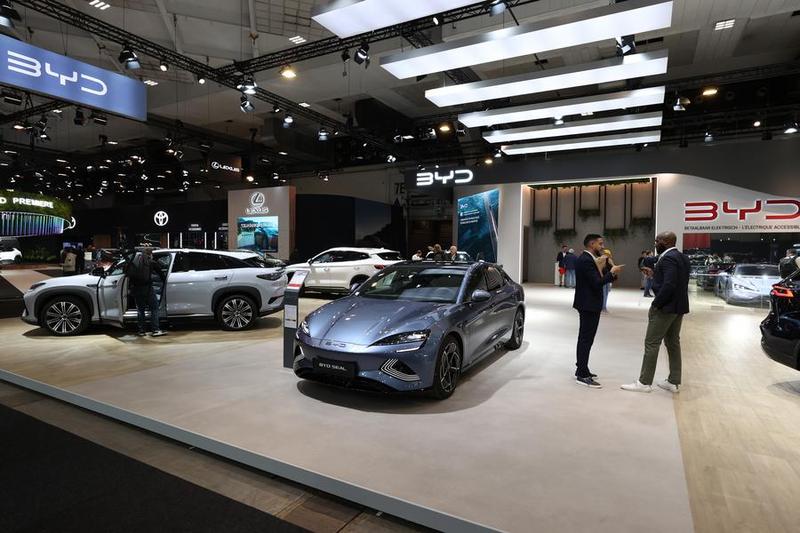Selective Protectionism is Europe’s Achilles Heal

Openness and inclusion are the bedrock of European prosperity; cooperation and mutual benefit are the trend of our times. China stands ready to work with visionary Europeans to foster stable, healthy economic ties and contribute to an open global economy.
The European Commission’s 2024 Annual Report on Trade Defense Instruments, released on July 28, proclaims a “historic high” in trade protection measures. But beneath the self-congratulation lies a troubling reality: the European Union is sliding into selective protectionism under the guise of “economic security.”
The numbers speak volumes. Of the EU’s 199 active trade measures, 85 target China — more than 40 percent. Of the 29 new anti-dumping investigations, 20 focus on China — nearly 70 percent. This unequal approach starkly contradicts the EU’s long-standing commitment to free trade principles.
Some European experts are sounding the alarm. However, the overuse of trade remedies against China fails to address the structural decline in Europe’s industrial competitiveness. Instead, it risks entrenching a fragmented trade system — one that opens doors to allies while building walls against competitors. This brand of “rules-based” protectionism undermines the multilateral trade framework and could ultimately backfire on European businesses.
Industrial anxiety is no excuse for protectionism
The EU claims its trade defenses have “protected 625,000 jobs,” but this figure obscures a harsher truth: European industries like steel and chemicals continue to lose ground in global competition. Dozens of trade investigations targeting Chinese steel have not meaningfully improved European companies’ profit margins. These companies are now even more vulnerable to global demand fluctuations.
Meanwhile, the report glosses over the collateral damage to European companies reliant on Chinese supply chains. German automakers such as Volkswagen and BMW face rising costs and market share losses due to disruption in supply chains. Trade barriers are no substitute for innovation or industrial upgrades, nor can they halt the trend of deepening integration of global supply chains.
The EU’s recent scrutiny of Chinese electric vehicles and wind power equipment — under the pretext of anti-subsidy measures — appears aimed at curbing China’s rise in green technology. This “closing the door to shun competition” mentality runs counter to World Trade Organization rules and the EU’s own Green Deal ambitions. China’s rapid advancements in renewable energy offer affordable solutions vital to the global green transition. By building barriers, Europe risks missing a key opportunity to collaborate with China on climate change.

A “Geopolitical Europe” betrays free trade ideals
European scholar Laia Comerma, in an article published in the Journal of Common Market Studies, warns that EU trade policy is shifting from “strategic autonomy” to a more geopolitically driven approach, with China as the primary catalyst. Once a champion of multilateralism, the EU now wields trade policy as a weapon against competitors — even aligning with certain non-European powers’ “decoupling” agendas.
From foreign investment screenings to the Carbon Border Adjustment Mechanism, and from 5G “toolboxes” to the International Procurement Instrument, these seemingly neutral rules disproportionately target China and erode the EU’s credibility.
Ironically, while the EU enforces protectionist measures against China, the United States imposes more than 40 trade defense measures on European goods — more than twice China’s 18 against the EU. Intent on “values-driven alliances,” the EU turns a blind eye to trade bullying from its allies while fixating on China. This selective approach is unlikely to garner global support.
Worse still, the rise of populist forces following the 2024 European Parliament elections, combined with mounting geopolitical tensions, threatens to further fragment the EU’s trade architecture. This could accelerate global trade fragmentation and stall economic recovery worldwide.
Open cooperation is Europe’s true path
Amid a sluggish global recovery, high inflation and continued supply chain disruptions, China and the EU — two of the world’s largest economies — should unite to uphold the multilateral trade system and inject stability into a turbulent world.
China has consistently supported WTO reforms, opposed unilateralism and protectionism, and expressed willingness to deepen cooperation with the EU in renewable energy, the digital economy, and artificial intelligence. Joint exploration of third-party markets could benefit both sides. If Europe continues to treat China as a “systemic rival,” it risks becoming a pawn in great-power rivalries, sacrificing its own strategic autonomy.
History shows protectionism is a poison, not a cure. The Smoot-Hawley Tariff Act of the 1930s worsened the Great Depression, while the U.S.-Japan trade conflicts of the 1980s accelerated America’s industrial decline and ushered in Japan’s “lost decades.” Should Europe repeat these mistakes amid today’s anti-globalization surge, it risks undermining its policy objectives and serving as a cautionary tale for others.
Openness and inclusion are the bedrock of European prosperity; cooperation and mutual benefit are the trend of our times. China stands ready to work with visionary Europeans to foster stable, healthy economic ties and contribute to an open global economy. Those who build walls will isolate themselves. Those who build bridges will thrive.
 Facebook
Facebook
 Twitter
Twitter
 Linkedin
Linkedin
 Google +
Google +










